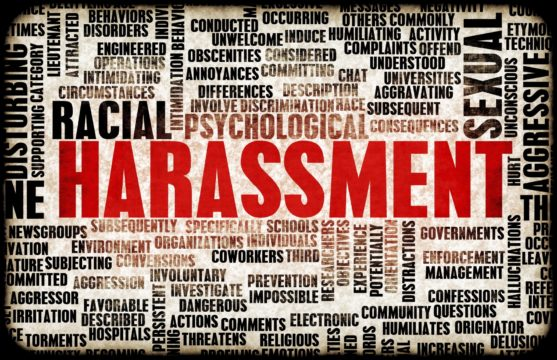Suzanne Anton: "The provincial government should ensure that enough justification for each public health order is given to hold up in court, if challenged."
Tracey Young. (Feb. 17, 2021). Suzanne Anton: Making sure public
health orders hold up to challenges. Canadian Advocacy Centre for Health, Safety and Justice. Retrieved from: https://canadianadvocacycentre.blogspot.com/2021/02/suzanne-anton-making-sure-public-health.html.
Making sure public health orders hold up to challenges
When Parliament and Legislatures enacted the Canadian Charter of Rights and Human Rights Codes, they were establishing meaningful and enduring rights. Rights which are there for all of us, all the time – not just when things are going swimmingly.
Charter rights include freedom of conscience and religion; freedom of thought, belief, opinion and expression; freedom of peaceful assembly; freedom of association; and mobility rights. The BC Human Rights Code prevents discrimination based on race, colour, ancestry, place of origin, religion, marital status, family status, physical or mental disability, sex, sexual orientation, gender identity or expression, or age.
These are powerful rights, in place to protect citizens from both government overreach and the tyranny of the majority.
The ongoing COVID public health orders are by far the most significant limitations of rights in our lifetimes. Perhaps in the history of the country. Public health orders are perfectly legitimate and can be completely compatible with the rights of Canadians. Reasonable limits to rights can be made, so long as the limits are supported by evidence, and not arbitrary.
In my opinion, recent orders have not met this standard.
An example is the extension of orders around masking in schools. On February 4, Minister of Education Jennifer Whiteside talked glowingly about the relative safety of our schools. There are plenty of “exposure events,” she said, but little or no actual transmission in the school system.
Public health orders are perfectly legitimate and can be completely compatible with the rights of Canadians. Reasonable limits to rights can be made, so long as the limits are supported by evidence, and not arbitrary.
Provincial Health Officer Dr. Bonnie Henry reinforced that messaging the next day, talking of the importance of children being in class, both for learning and for socializing. I believe she is absolutely right, and am glad that our schools opened in September and have stayed open. Many jurisdictions have not been so fortunate.
So with both the Minister and Dr. Henry reminding us how well the schools are doing and how little risk they pose to children or to their teachers, why was it necessary to change the public health orders around masks in schools?
Public demand, from teachers and parents.
Because of public demand, high school students will now have to put on their masks away from their desks. If new medical or scientific evidence was driving this change, the provincial government should have put it front and centre.
It’s hard to imagine how a 14-year-old putting a mask (back) on to sharpen her pencil will prevent even one case of COVID, but I am not an expert. I would have listened with interest to any information demonstrating the contrary, but none was forthcoming.
An order made without evidence and bowing to public demand is not a properly made order.
Much broader, and far more serious, is the continuing extension of the group of orders made in November. They were broad-based orders, including the prohibition of events or gatherings of any kind (with minor exceptions); prohibitions against having anyone to your home, indoors or outdoors (with some exceptions); restrictions on sporting activities; and travel advisories.
The justification for the orders was the second wave, alarm over rising case numbers, and potentially overstressing the health care system.
The orders were made for two weeks to get through one or two incubations. They were renewed biweekly at first, then for a month, and now indefinitely.
In my opinion, the justification for the one month renewal in January was weak; the justification for the indefinite renewal was no better: Worries about a variety of issues including more infectious variants of the virus, but overall just the need to “buy time,” said officials.
But aside from worry, no real evidence was offered in support. That worry may be justified, but worrying out loud is not sufficient cause for suspending basic rights. And were it to come to a legal challenge, I fear numbers would not support it; trends in new case numbers, hospitalizations, and patients in ICU are declining. These were the metrics when the orders were first put in place nearly a year ago. And these were the metrics in November when the current orders were made.
That worry may be justified, but worrying out loud is not sufficient cause for suspending basic rights.
Now there are no metrics. No goalposts. Do we need to get to zero cases? Or a number greater than zero? Hospitalizations at zero?
Even setting aside the enormous social and economic impacts – which are serious, from banning even minimally risky outdoor gatherings and bored, stifled children, up to undiagnosed cancers and the misery of those stranded in long-term care who have not hugged relatives in nearly a year – the legal precedent is worrisome. And even if you broadly support these orders – or more yet restrictive ones – the provincial government should ensure that enough justification was given to hold up in court, if challenged.
Authorities should absolutely carry on requiring COVID plans, providing health advice, and issuing public health orders where and when necessary. But it’s worth worrying about the precedent set when basic, essential rights are curtailed with orders made to “buy time,” and without clear-cut justification.
Hon. Suzanne Anton QC is a former Minister of Justice and Attorney General of British Columbia and a former Vancouver City Councillor.
Copyright ©
2021.Tracey Young/Canadian Advocacy Centre for Health, Safety and Justice. All
Rights Reserved.




No comments:
Post a Comment